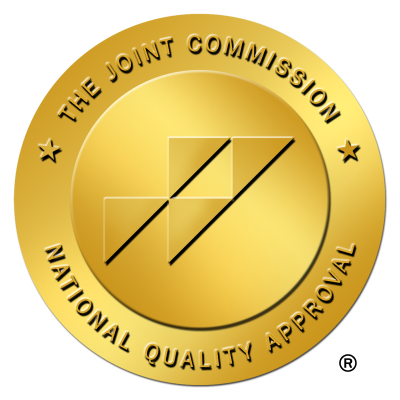The Benefits of Group Therapy for Addiction Recovery

Introduction
Group therapy has emerged as a cornerstone of addiction treatment, providing exceptional benefits to those embarking on the journey to recovery from substance use disorders. This form of therapy leverages the power of community, creating a supportive environment that fosters a sense of belonging and reduces isolation. Through structured sessions, participants learn from one another, developing effective communication skills and coping mechanisms essential for sustained recovery. Understanding the myriad ways group therapy aids in addiction recovery shines a light on its integral role and effectiveness in modern substance abuse treatment strategies.
The Multifaceted Benefits of Group Therapy
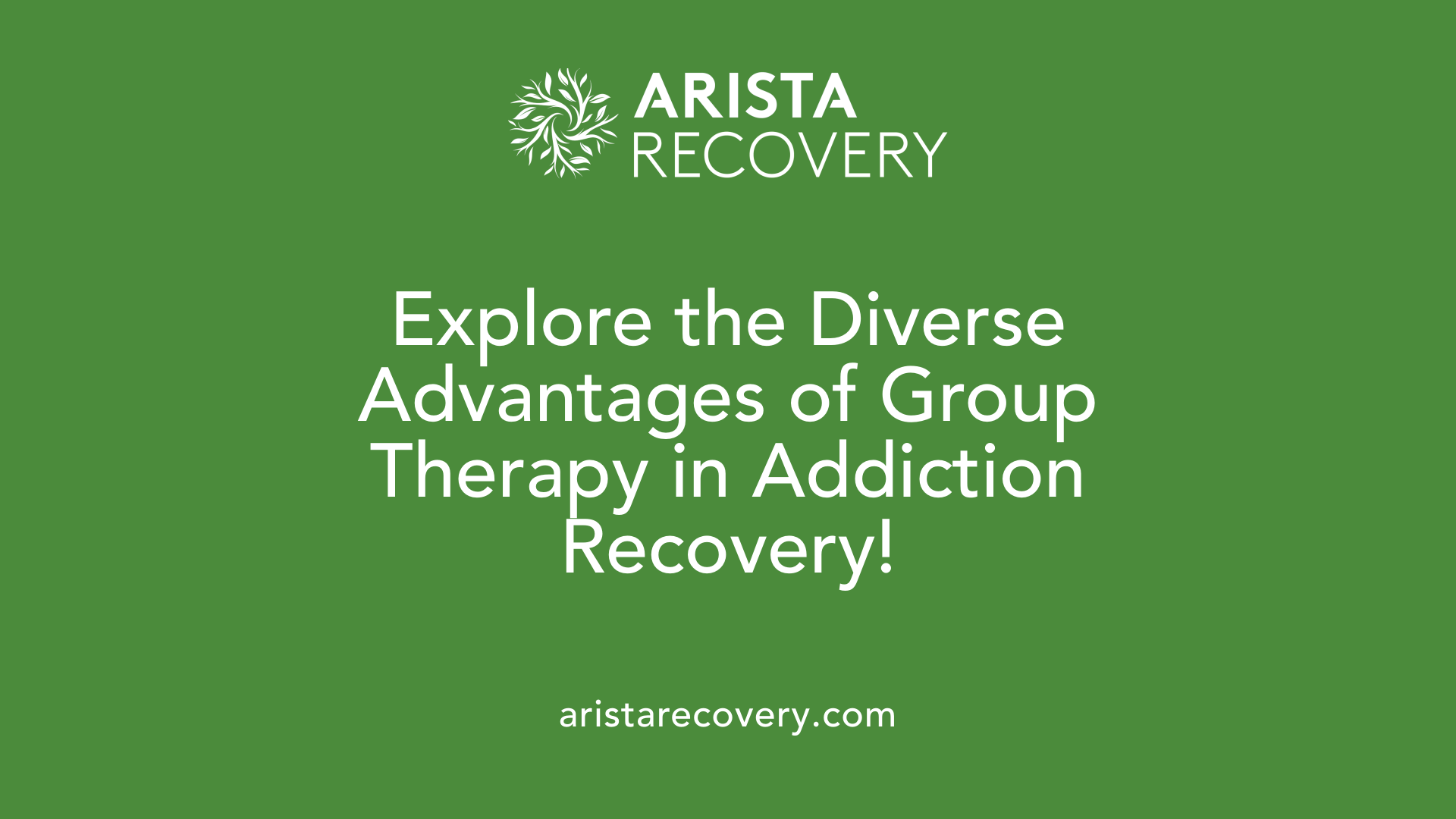
What are the benefits of group therapy for addiction recovery?
Group therapy offers numerous benefits for addiction recovery, most notably through the promotion of social support and the development of effective communication skills among participants. Here’s how these elements work in favor of recovery:
Social Support: Group therapy fosters a sense of community where individuals can connect with peers facing similar challenges. This connection reduces feelings of isolation and stigma often associated with addiction. Participants report feeling more understood and supported, which is a critical aspect of recovery.
Communication Skill Development: Participants engage in discussions about their triggers, emotions, and recovery journeys. This practice enhances their ability to express themselves and actively listen to others, improving interpersonal skills crucial for maintaining relationships outside the therapy setting.
Research indicates that 93% of substance use disorder (SUD) treatment facilities incorporate group therapy, highlighting its widespread acceptance and effectiveness.
- Effectiveness in Treatment: Key therapeutic processes, such as group cohesion and a strong therapeutic alliance, contribute to better treatment engagement, retention, and improved abstinence rates. Studies suggest that group therapy is comparable to individual therapy regarding treatment acceptance and psychological symptom relief. It demonstrates significant efficacy in decreasing substance use, offering a reliable alternative for various recovery scenarios.
In summary, the integration of group therapy in addiction recovery enhances social support networks, equips individuals with vital communication skills, and maintains the effectiveness similar to individual therapy while often being more accessible and cost-effective.
Community Support: The Backbone of Recovery
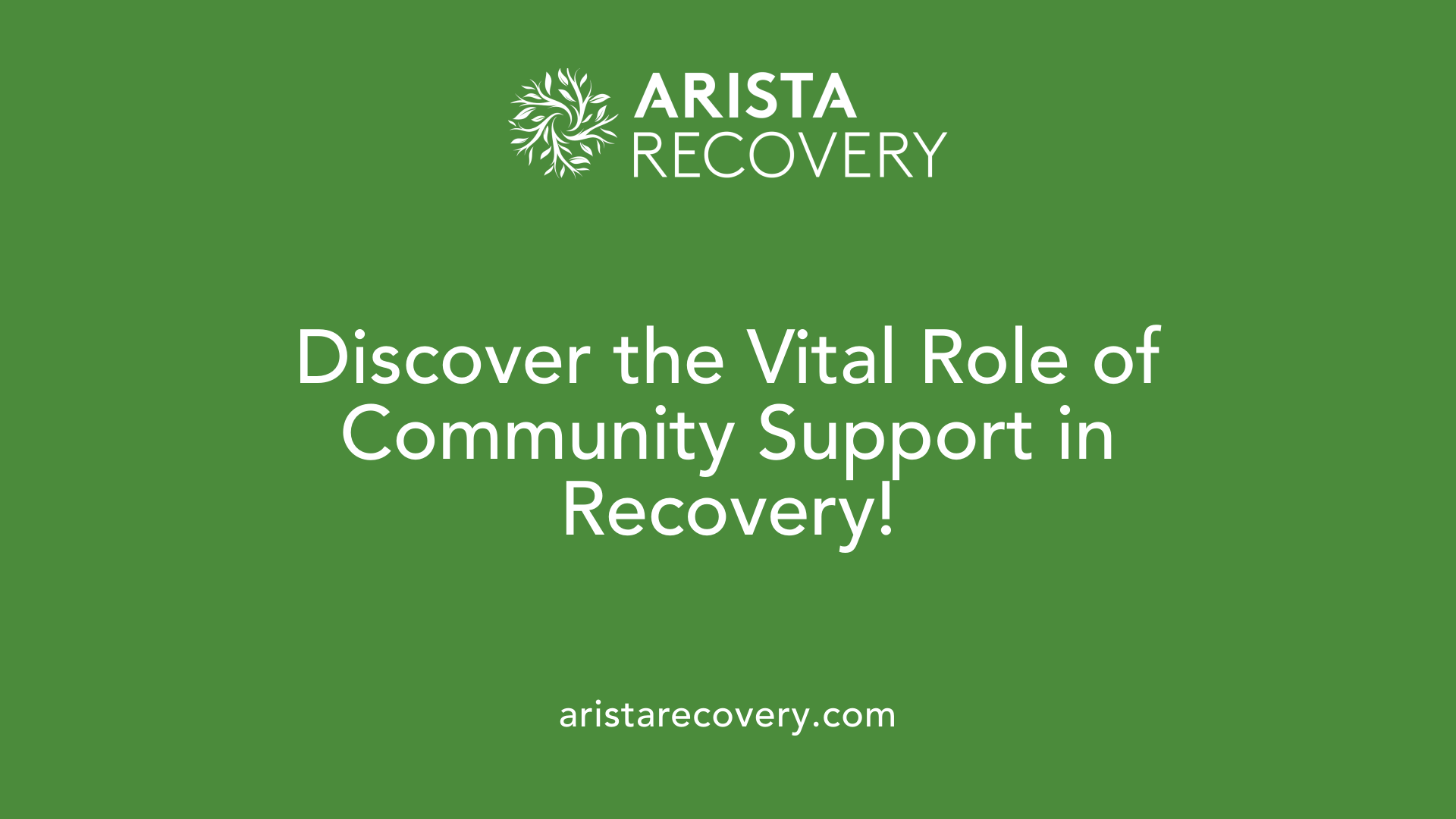
What role does community support play in group therapy sessions?
Community support plays a crucial role in group therapy sessions by fostering a sense of belonging and connection among participants who face similar challenges. This environment significantly reduces feelings of isolation and loneliness, allowing individuals to share their experiences and insights in a safe, non-judgmental space.
Engagement in group therapy promotes peer support, which has been shown to improve treatment engagement and substance use outcomes. Participants frequently report higher satisfaction rates and lower relapse incidents as a result of the support received within the group. This connection not only motivates individuals but also provides them with diverse perspectives on overcoming personal challenges.
Benefits of Peer Support in Recovery
Here are some key benefits of community support through group therapy:
- Sense of Belonging: Participants often feel valued and understood, which is essential for their recovery journey.
- Reduction of Isolation: Sharing struggles with peers helps individuals realize they are not alone, countering the stigma often associated with addiction.
- Accountability and Motivation: Group members hold each other accountable, celebrating milestones together, which fosters ongoing commitment.
In conclusion, community support is an essential component of comprehensive treatment approaches for substance use disorders, reinforcing individual efforts and enhancing the overall recovery experience.
Mechanisms for Personal Growth and Accountability
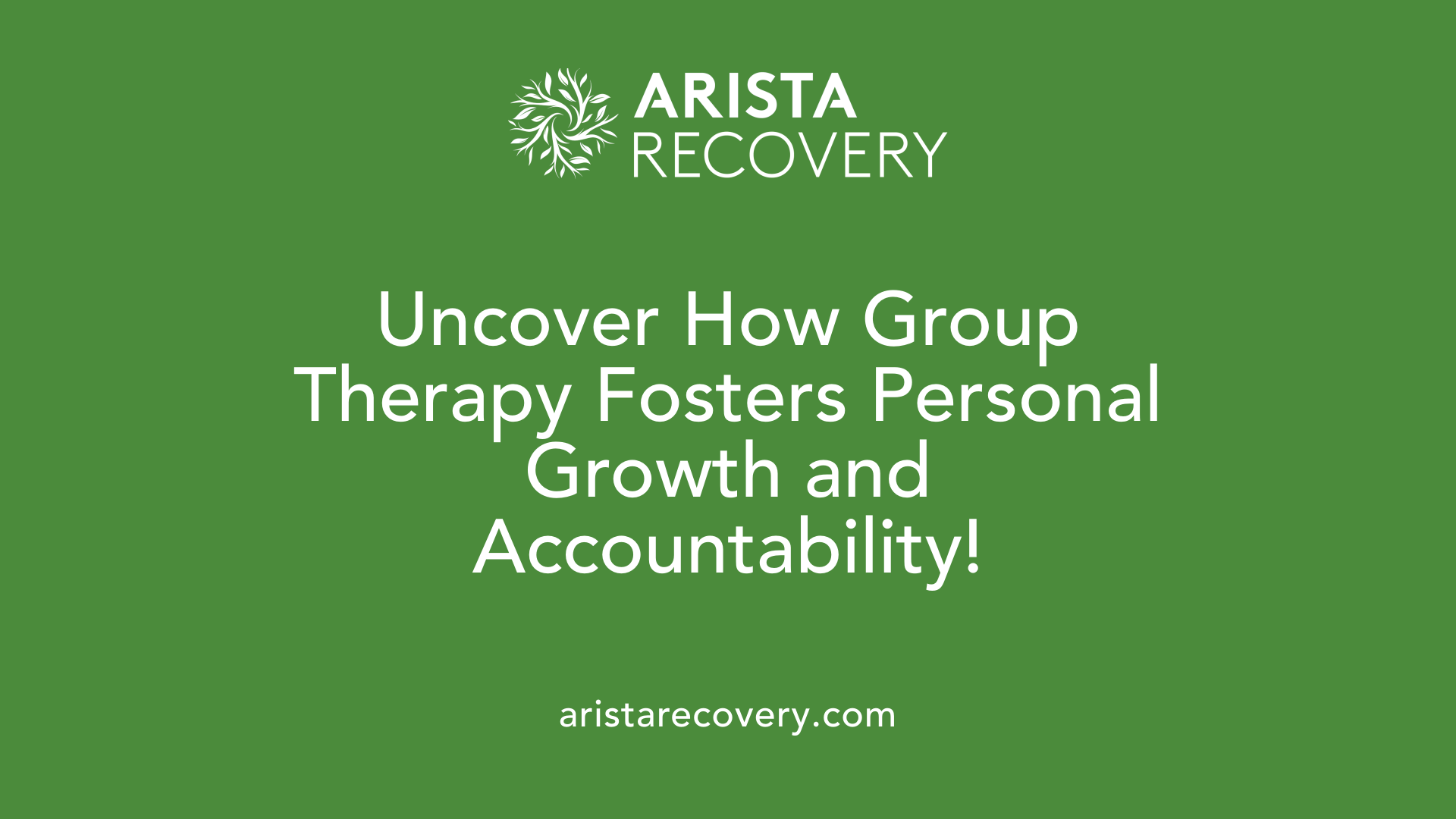
How does group therapy aid in personal growth and accountability for those in recovery?
Group therapy facilitates personal growth and accountability in multiple impactful ways. First, it establishes a structured environment where participants can openly share their experiences and emotions. This shared vulnerability creates a nurturing space that fosters a sense of belonging and support. Individuals often find motivation through the collective pursuit of recovery goals, realizing they are not alone on their journey.
Therapeutic strategies in group therapy
Various therapeutic strategies are employed within group settings, enhancing personal development:
- Cognitive Behavioral Therapy (CBT): Focuses on modifying negative thought patterns, helping members develop healthier responses to triggers.
- Psychodynamic therapy: Encourages exploration of interpersonal relationships and emotional patterns, enabling deeper self-awareness.
- Supportive discussions: Allow participants to share coping strategies, leveraging insights gained from diverse perspectives.
Member accountability
Accountability is greatly enhanced in group settings. Group cohesion and the active support of peers act as a motivating force that encourages members to meet their personal recovery objectives. As participants share their progress and struggles, they cultivate a network of encouragement. This dynamic environment promotes the development of virtues such as courage and altruism, significantly contributing to improved mental health and allowing members to hold each other accountable in their recovery journey.
Comparing Group and Individual Therapy for Addiction
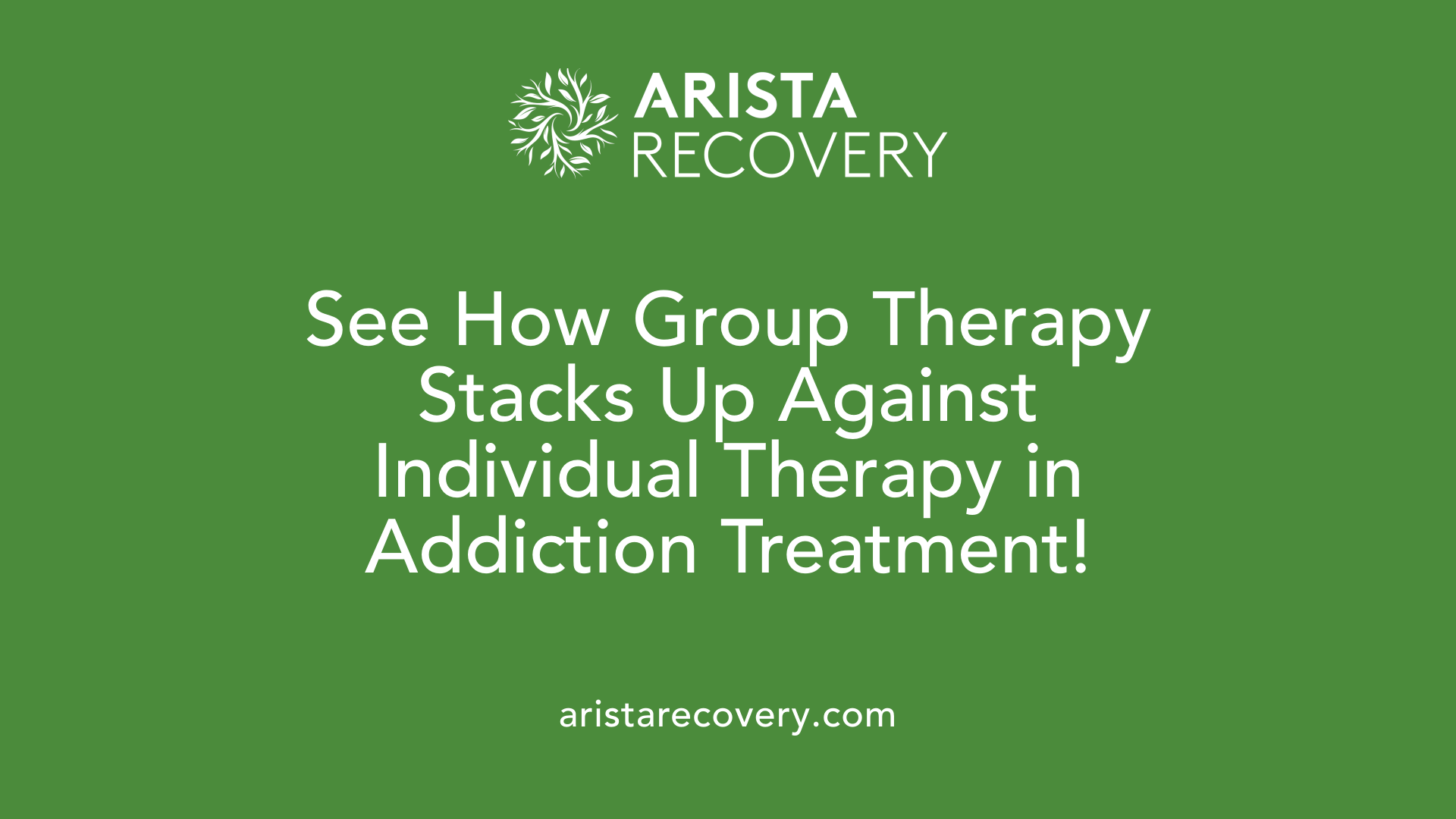
How does group therapy compare to individual therapy in addiction treatment?
Group therapy and individual therapy are both effective methods for treating addiction, but they offer different experiences and benefits to participants. In a group therapy setting, clients work collaboratively with peers and therapists, fostering a sense of community that enhances social support networks. This collective experience can provide participants with feelings of belonging that are vital for recovery.
Research has shown that outcomes from group therapy can be comparable to those achieved through individual therapy. Participants often report similar levels of improvement in areas such as treatment retention and reductions in substance use frequency. This effectiveness can be attributed to key aspects of group therapy, such as the strength of the therapeutic alliance among group members and facilitators, along with the cohesion built within the group, which facilitates engagement and accountability.
Moreover, group therapy encourages participants to explore shared experiences, enabling them to learn from one another’s journeys. Through discussing challenges and coping strategies, individuals gain new perspectives that can enhance their own recovery. Ultimately, the choice between group and individual therapy often depends on personal preferences and specific treatment needs, as both modalities can be valuable in the journey toward sobriety.
Understanding Group Dynamics and Therapeutic Processes
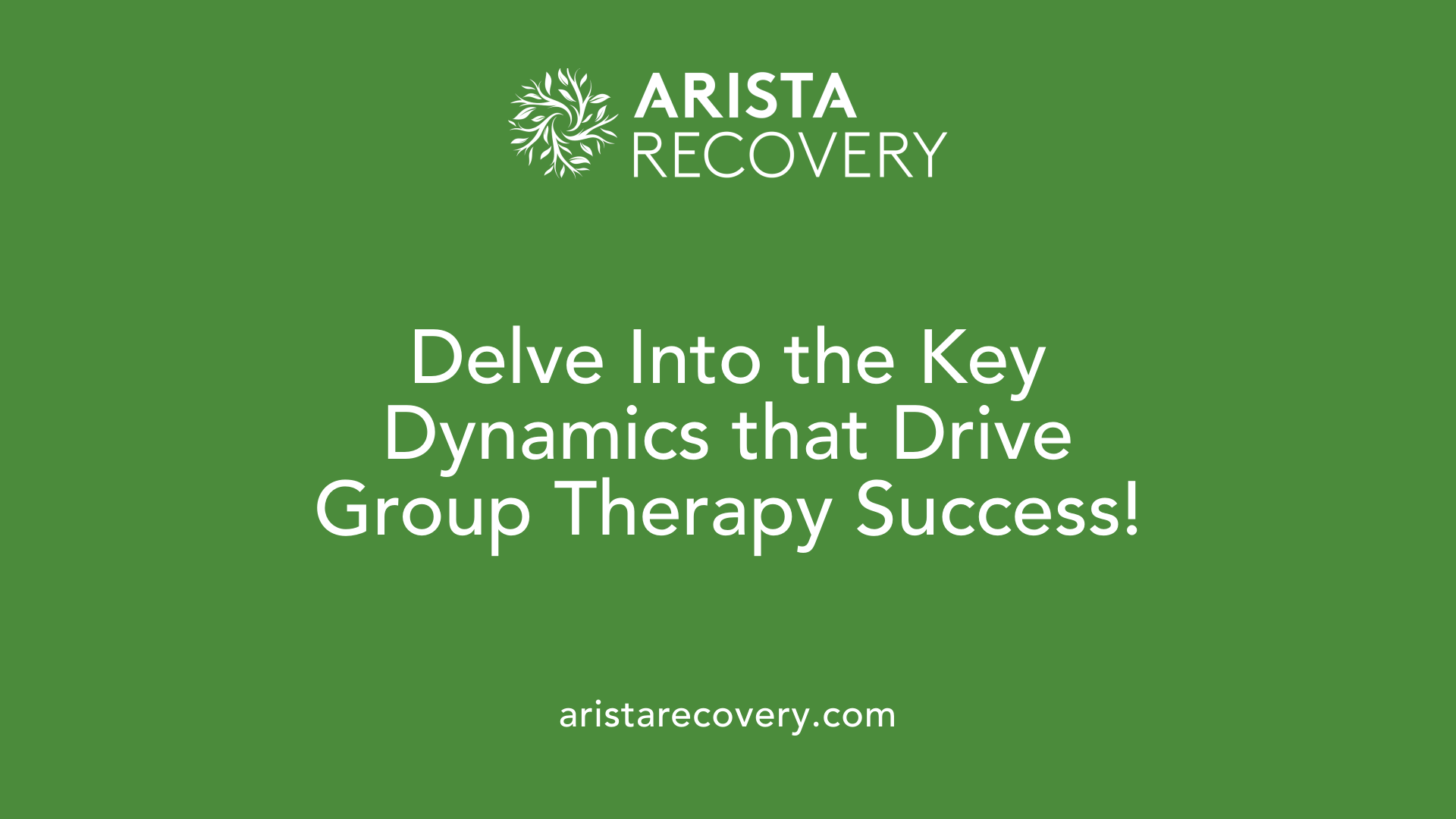
What are common therapeutic processes or dynamics observed in group therapy?
Group therapy thrives on specific therapeutic processes that significantly impact recovery outcomes. Notable dynamics include catharsis, therapeutic alliance, and group cohesion. These elements facilitate connections among participants as they share similar struggles, leading to a deeper sense of belonging.
- Catharsis: This refers to the emotional release experienced when participants express their feelings in a safe environment. Sharing individual stories and emotions can alleviate psychological burdens, fostering healing.
- Therapeutic Alliance: Building rapport with both group members and the facilitator leads to increased trust and open communication. A strong therapeutic alliance enhances participants’ engagement and commitment to their recovery paths.
- Cohesion: The sense of unity among group members not only strengthens support networks but also encourages accountability. Members feel less isolated, motivating them to remain focused on their recovery goals.
These processes, coupled with therapeutic approaches like cognitive behavioral therapy (CBT) and psychodynamic methods, help participants develop coping strategies, address past traumas, and improve emotional regulation skills.
Moreover, the benefits of these dynamics extend to a broad range of mental health conditions, enabling growth in psychological virtues such as hope and altruism. By fostering a sense of community, group therapy becomes an accessible and effective treatment option for many individuals facing diverse challenges in their recovery journey.
Empirical Evidence Supporting Group Therapy's Effectiveness
Effectiveness studies
Numerous studies have demonstrated the effectiveness of group therapy in addressing substance use disorders (SUDs). For instance, group Cognitive Behavioral Therapy (CBT) and Contingency Management (CM) have shown superior results in reducing cocaine usage compared to traditional treatment methods. Additionally, CM has proven effective in reducing methamphetamine use more than standard group treatments.
Meta-analysis data
A comprehensive meta-analysis encompassing 33 randomized clinical trials revealed significant benefits of group therapy, with participation leading to moderate improvements in mental state and reductions in substance use among participants. The evidence indicates that group therapy fosters engagement and support, which are pivotal in effectively managing SUDs.
Comparative outcomes
When comparing group therapy to individual therapy, the results underscore a crucial note: both modalities yield similar efficacy in treating substance use issues. Group therapy offers advantages such as enhanced peer support, greater accountability, and the opportunity to learn from diverse perspectives. This environment not only mitigates feelings of isolation but also enhances the recovery process by promoting community involvement.
Specialized Group Therapy Models for Addiction
Types of Therapeutic Models
Group therapy encompasses a variety of specialized models tailored to address different aspects of addiction recovery. Key models include:
- Psychoeducational Groups: Focus on increasing awareness of the consequences of substance abuse, fostering understanding, and motivating recovery participation.
- Cognitive Behavioral Therapy (CBT) Groups: Concentrate on changing negative thought patterns associated with substance use and developing healthier coping mechanisms.
- Skills Development Groups: Teach essential life skills that aid in maintaining sobriety and managing interpersonal relationships.
- Support Groups: Offer emotional sustenance and shared experiences to help clients transition to healthier lifestyles.
- Interpersonal Process Groups: Explore participants' relationships and dynamics that may contribute to their substance abuse issues.
Targeting Specific Needs
Specialized groups can address unique demographics and specific issues. For instance, women’s recovery groups focus on the particular challenges faced by female individuals struggling with addiction, creating a supportive environment tailored to their experiences.
Relapse Prevention
Relapse prevention groups specifically prepare clients for high-risk situations, providing strategies and community support. This proactive approach enhances coping strategies, ensuring individuals are equipped to maintain sobriety even in challenging times.
The Role of Group Therapy in Skill Development
Learning New Strategies
Group therapy provides a unique platform for participants to learn and practice new coping strategies. Through guided discussions and structured activities, individuals can identify healthy responses to triggers and stressors, ultimately fostering resilience against substance use.
Peer Learning
Engaging in discussions within a group enriches the recovery experience by allowing members to share their personal stories and insights. This peer-to-peer learning creates an environment where participants can adopt strategies from others, enhancing their own approaches to overcoming addiction challenges.
Communication Enhancement
Effective communication is a crucial skill that group therapy nurtures. Participants practice expressing their emotions and thoughts, while also learning to listen actively. This dual focus not only helps in addressing individual issues but also builds healthier relationships, both within and outside the group setting.
| Skill Area | Benefits | Group Therapy Activities |
|---|---|---|
| Coping Strategies | Develop resilience and manage cravings | Skill-building exercises, role-playing scenarios |
| Peer Insights | Gain new perspectives on recovery | Group discussions sharing personal experiences |
| Communication Skills | Enhance emotional expression and support | Guided sharing sessions, active listening practices |
Incorporating these elements, group therapy not only addresses substance use but also equips individuals with the essential skills necessary for long-term recovery.
Conclusion
Through fostering a conducive environment rich in empathy and shared understanding, group therapy empowers individuals in addiction recovery to build lasting networks of support while developing essential life skills. Its widespread adoption among treatment facilities underscores its invaluable role in managing substance use disorders. By offering diverse therapeutic benefits, from boosting personal growth to reducing relapse rates, group therapy serves as a pivotal element in comprehensive addiction treatment strategies. As practitioners continue to unravel its potential, group therapy stands not only as an equally effective alternative to individual therapy but also as a unique modality that harnesses the power of community for sustainable recovery.
References
- A review of research-supported group treatments for drug use ...
- [PDF] Group Therapy In Substance Use Treatment - SAMHSA Publications
- Group treatment for substance use disorder in adults: A systematic ...
- 5 Benefits of Group Therapy During Addiction Recovery
- Exploring the Power of Group Therapy for Substance Use Disorders
- Group Therapy - Addiction Center
- The Benefits of Group Therapy in Addiction Recovery
- Group Therapy vs Individual Therapy: Uses, Benefits & Effectiveness

